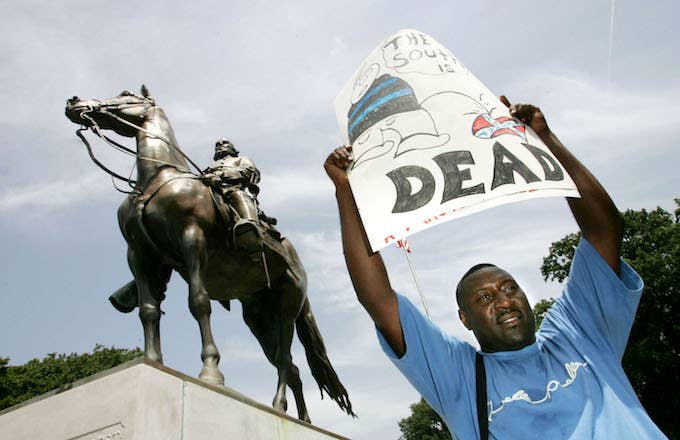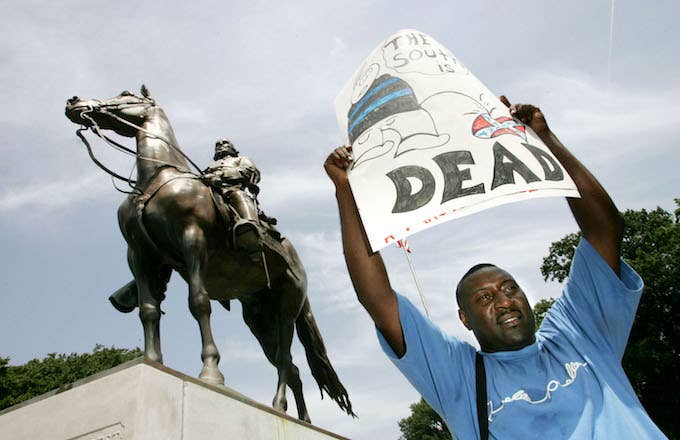
The city of Memphis, Tennessee has finally removed Confederate monuments that occupied two of its public parks. And it only took two years of negotiations and legal maneuvering to pull it off.
According to CNN, the Memphis City Council voted Wednesday night to sell the parks to a private entity—a decision that allowed the city to work around the 2013 Tennessee Heritage Protection Act, which prohibits the renaming, relocation, and removal of memorials on public land. Nonprofit organization Greenspace purchased the parks for $1,000 each. Shortly after the deal was finalized, work crews went to the parks and began removing the monuments. One was a statue of Confederate general Nathan Bedford Forrest, a prominent figure in the Ku Klux Klan; the other was made in honor of Confederate president Jefferson Davis.
“The statues no longer represent who we are as a modern, diverse city with momentum. As I told the Tennessee Historical Commission in October, our community wants to reserve places of reverence for those we honor,” Memphis Mayor Jim Strickland wrote in statement. “Though the spotlight has been bright on this for a few months now, it’s worth remembering that this is another step of a years-long journey of which many Memphians have been a part.”
Strickland went on to explain that the city council voted to remove the Forrest statue about two years ago; however, the Tennessee Historical Commission denied the request. In 2016, the city gave it another shot, and attempted to secure a waiver from the Tennessee Heritage Protection Act. But, once again, the Historical Commission denied their request. So, the city council voted to sell the land off so the new proprietor could remove the statues.
Unsurprisingly, not everyone is happy about the take-downs.
“It is a deliberate attempt to avoid the state law and the city is breaking the law,” Lee Millar with Sons of the Confederate Veterans told CNN.
Tennessee Republicans have also called for an investigation of the sale; however, Strickland made sure to stress the legality of the council’s controversial decision.
“It’s important to remember what I’ve said all along: I was committed to remove the statues in a lawful way. From the beginning, we have followed state law—and tonight’s action is no different,” Strickland wrote. “The Historical Commission was not the only legal avenue.”

